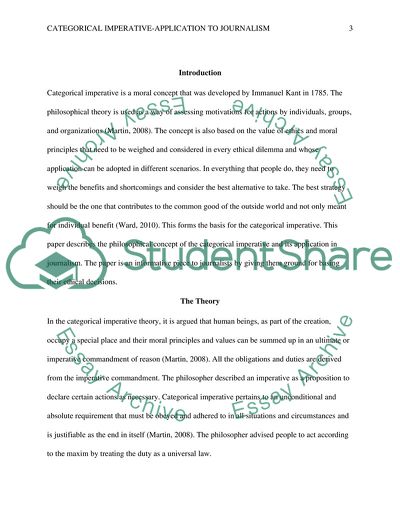Cite this document
(Categorical Imperative-Application to Journalism Term Paper Example | Topics and Well Written Essays - 1500 words, n.d.)
Categorical Imperative-Application to Journalism Term Paper Example | Topics and Well Written Essays - 1500 words. https://studentshare.org/journalism-communication/1877647-categorical-imperative-application-to-journalism
Categorical Imperative-Application to Journalism Term Paper Example | Topics and Well Written Essays - 1500 words. https://studentshare.org/journalism-communication/1877647-categorical-imperative-application-to-journalism
(Categorical Imperative-Application to Journalism Term Paper Example | Topics and Well Written Essays - 1500 Words)
Categorical Imperative-Application to Journalism Term Paper Example | Topics and Well Written Essays - 1500 Words. https://studentshare.org/journalism-communication/1877647-categorical-imperative-application-to-journalism.
Categorical Imperative-Application to Journalism Term Paper Example | Topics and Well Written Essays - 1500 Words. https://studentshare.org/journalism-communication/1877647-categorical-imperative-application-to-journalism.
“Categorical Imperative-Application to Journalism Term Paper Example | Topics and Well Written Essays - 1500 Words”. https://studentshare.org/journalism-communication/1877647-categorical-imperative-application-to-journalism.


